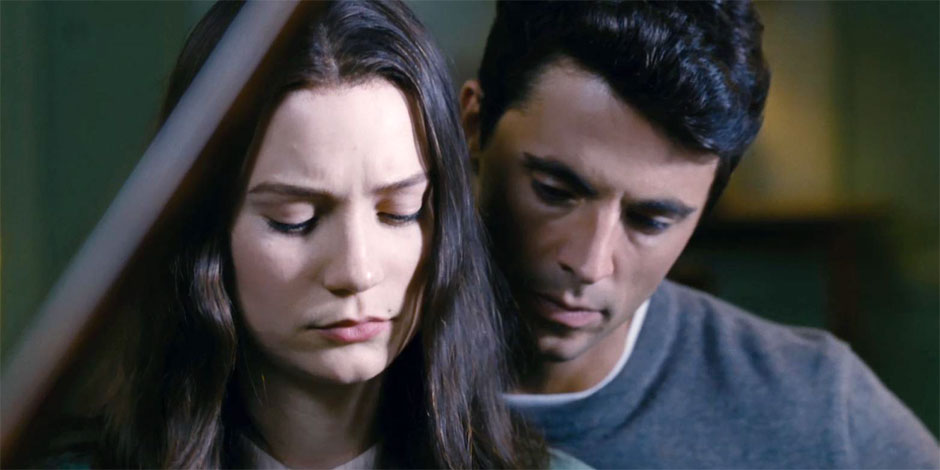 [Note: The Manifesto has reviewed 89 different 2013 releases up to this point. Some were bad, some were good; some reached for greatness and failed, others didn’t reach at all. In short, it was another year at the movies. To that end, this review constitutes the beginning of our countdown of the year’s 10 best.]
[Note: The Manifesto has reviewed 89 different 2013 releases up to this point. Some were bad, some were good; some reached for greatness and failed, others didn’t reach at all. In short, it was another year at the movies. To that end, this review constitutes the beginning of our countdown of the year’s 10 best.]
On its face, Stoker, the first English-language effort from the Korean auteur Park Chan-wook, is vulgar to the point of childishness. Its plot traffics in incest and murder. Its central characters are a lecherous uncle, an unhinged mother, and a depraved daughter. It is, without doubt, lurid, tawdry, and obscene. Yet it is also—at least for viewers who admire bold and authoritative filmmaking—provocative, debonair, and sexy. It is pulp entertainment dressed up as high art. Or perhaps it’s the other way around. Either way, it’s spellbinding.
Stoker stars Mia Wasikowska as that aforementioned daughter, an 18-year-old named India, who begins the movie attending her father’s funeral along with her mother, Evelyn (Nicole Kidman). Also unexpectedly present is her uncle, Charlie (Matthew Goode), a man whose very existence was previously unknown to India. Charlie quickly resolves to fulfill his fraternal duty and take up residence in the bereaved pair’s household—a foreboding Gothic structure isolated from the rest of civilization—ostensibly to comfort Evelyn and serve as a father figure to India. But his true intentions are cloudy, though given his eerie calm and piercing stare, they are undoubtedly more sinister.
From there, Stoker only grows creepier, as Charlie cozies up to Evelyn but also seems to share an unspoken connection with India, who regards him with a mixture of suspicion and fascination. Gradually, the movie’s whispered, violent undertones take form, and India finds herself investigating one murder while potentially abetting another. It is all a bit ridiculous, and in some ways—most notably the perfumed Southern setting and Kidman’s erratic peripheral presence—it recalls Lee Daniels’ The Paperboy. But where that film was proudly, relentlessly trashy, Stoker is exquisitely elegant. Park, who previously made the cult classic Oldboy and the underrated vampire drama Thirst, delivers yet another absurdist tale of wretched souls, but here he does so with meticulous, astonishing craft. Working with longtime cinematographer Chung Chung-hoon, his camera is a roving voyeur, constantly circling his characters as though it’s asked them to dance. In this sense, his technique is striking and aggressive, but it is also graceful and restrained. Park doesn’t want to dazzle you with his showmanship, which is precisely why Stoker is so dazzling; instead of bludgeoning you with the sheer force of his talent, he uses that talent to draw you in and saturate your senses with the movie’s aromatic beauty.
He also keeps you on your toes. Stoker‘s plot may be absurd, but its mood is persistently unsettling and engrossing, and you never quite know what’s going to happen next. It’s a risky approach that might alienate more plot-focused viewers, but it pays enormous dividends, particularly in its seductive wordless passages. That’s true of a mesmerizing piano duet between India and Charlie that shudders with unspeakable tension, and also of the film’s centerpiece, a bravura piece of misdirection set in a shower that gradually builds your expectations only to suddenly shatter them. In moments like these, and many others, any reservations about the movie’s sordid story evaporate, and you lose yourself in Park’s hypnotic audacity.
Intermittently, Stoker takes the time to advance its faintly ludicrous plot, and when it does, some flaws start to sprout through the cracks. The movie’s greatest problem is Charlie, a character who, for all his purported malevolence and knowing smirks, isn’t all that threatening, or even interesting. But that’s immaterial, because the real mystery of Stoker is India herself. She is both victim and villain, terrified of Charlie’s sins and also somehow complicit in them, and Wasikowska, in the finest performance of her already-distinguished career, portrays her with the just-right combination of innocence and deviance. As Stoker crescendos to its magnificent finale, wherein India asserts her newfound independence with unshakable pluck, it becomes clear that we’ve been watching not a horror film but a singularly twisted coming-of-age story. Park has made movies about deranged killers and vampiric priests, but they’re no match for this alabaster-faced teenager who, with a hunting rifle and a pair of pruning shears, stakes her claim on the world.
Previously in the Manifesto’s Review of 2013
The Best Movies of 2013: Honorable Mention (Part II)
The Best Movies of 2013: Honorable Mention (Part I)
The Executors (Part III)
The Executors (Part II)
The Executors (Part I)
The Intriguers (Part III)
The Intriguers (Part II)
The Intriguers (Part I)
The Failures (Part II)
The Failures (Part I)
The Unmemorables (Part II)
The Unmemorables (Part I)
The Worst Movies of 2013
Jeremy Beck is the editor-in-chief of MovieManifesto. He watches more movies and television than he probably should.
